Staying Fit


Let’s say you and your 20-something son meet up for breakfast. You both order a couple of eggs, a slice of whole-wheat toast and coffee. You both enjoy the same breakfast. But in the coming hours, your bodies are going to respond to this meal very differently. These differences explain why we gain weight as we age and, more important, how we can reverse that process, prevent age-related weight gain and give ourselves a “whole body reset.”
Join the AARP Weight Loss After 50 Challenge
Learn what small changes you can make for health and wellness as we age. Step by step, we'll:
- Show you the secrets to losing weight
- Give you guides to healthy foods
- Provide dozens of delicious new recipes to try
- Help you embrace a whole new way of eating
The metabolism myth
We used to assume that the reason we gained weight in midlife was because of a decline in metabolism — or more precisely, what scientists call resting metabolic rate (RMR), which is how much energy your body needs to carry on basic functions. But a shocking study published in the journal Science in August 2021 found that our individual cells rev at pretty much the same rate in our 40s and 50s as they did in our 20s — indeed, our metabolic rate doesn’t start to slow until about age 60 or so, when it begins to drop at a rate of .07 percent a year.


AARP Membership— $12 for your first year when you sign up for Automatic Renewal
Get instant access to members-only products and hundreds of discounts, a free second membership, and a subscription to AARP the Magazine.
So the growing girth you notice — the difference between your body now and your body when you were in your 20s — isn’t due to metabolism. Something else is at play. Something you can actually control.
Different ages, different muscles
A 20-something body utilizes the protein from breakfast — 12 or so grams from the eggs and 4.5 grams from the whole-wheat toast — with maximum efficiency, turning the protein into healthy new muscle cells. This whole process is known as protein synthesis.
But while this life-sustaining process is going on inside your son’s body, it actually hasn’t kicked into gear inside yours. Studies show that older adults need at least 25 to 30 grams of protein at a time to stimulate the same muscle-building process that a younger person can get from just a couple of eggs.
What's in the Book?
The Whole Body Reset includes:
- Scores of recipes and snack suggestions
- A guide to dining out
- A 10-day jump-start plan
- A fitness plan that requires no equipment
Here’s why that’s important: The human body is constantly breaking down and building up muscle. But when the destruction of muscle outstrips its rate of repair over the long term, that eventually leads to a loss of muscle tissue. Studies show that older folks who fail to get 25 to 30 grams of protein in the morning are likely to stay in muscle-loss mode all day. At some point between ages 30 and 40, adults begin to lose 3 percent to 8 percent of their muscle mass each decade.
And the less muscle we have, the more fat we gain: Muscle not only burns more calories, but it helps to control blood sugar. The less muscle you have, the higher your blood sugar — and the more of that blood sugar your body is forced to turn into fat. Muscle loss has also been linked to increased risk of diabetes, cancer, heart disease, Alzheimer’s and a compromised immune system.
How to Preserve Muscle at 50+
A major reason for age-related muscle loss has to do with our diminished ability to process protein. To prevent muscle loss and the resulting weight gain and health woes:
- Eat at least 25 grams of protein (for women) or 30 grams of protein (for men) at every meal, especially breakfast, and at least one daily snack of at least 7 grams of protein.
- Eat colorful fruits and vegetables at every meal and snack. Studies show that the more inflammation-fighting produce you eat, the more muscle you retain as you age.
- Up your fiber intake with whole grains and legumes. A poll of dietitians found that beans, lentils and split peas were the most-recommended fiber sources.
- Try strength training. Studies show that when people in their 60s mix protein-rich meals with resistance exercise, their bodies respond as though they were in their 20s.



























































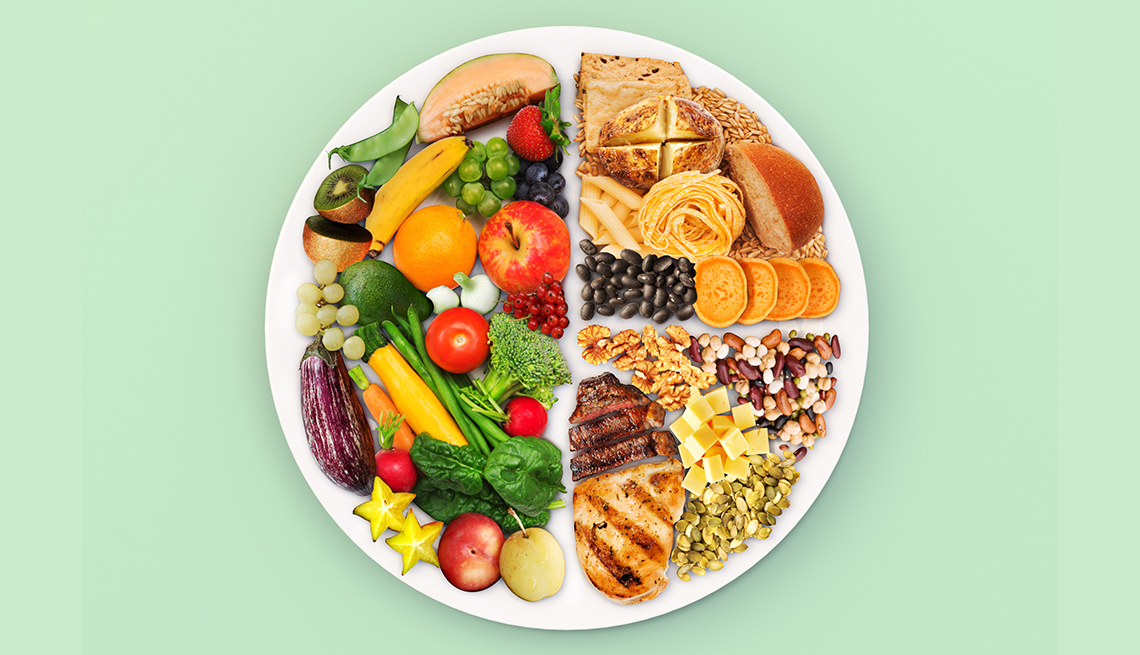

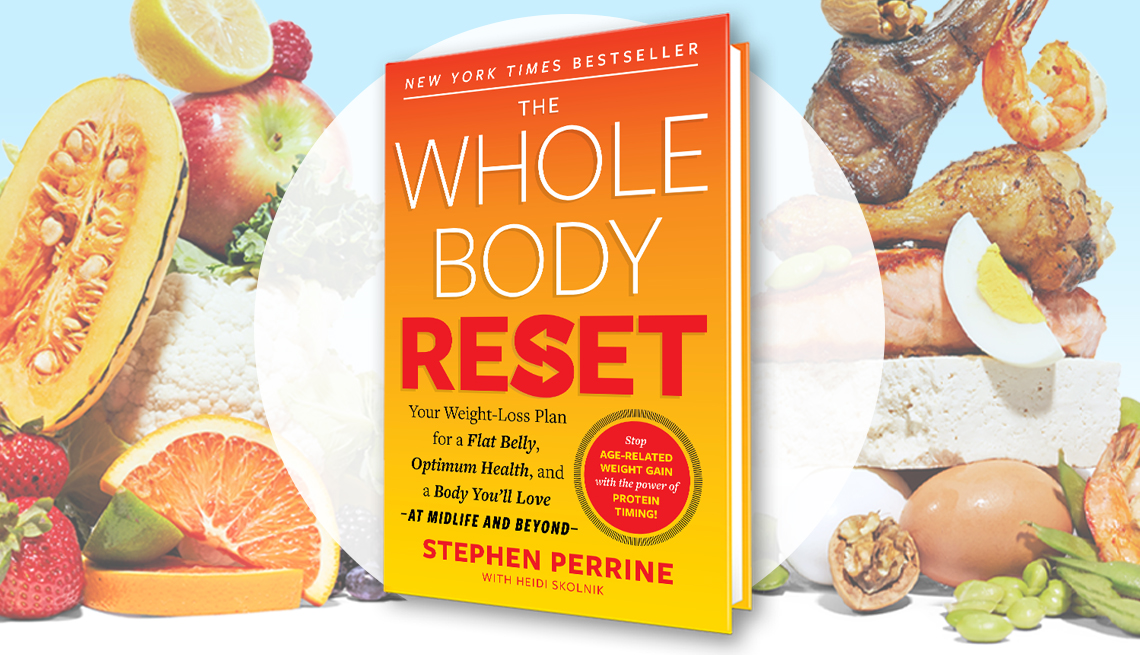
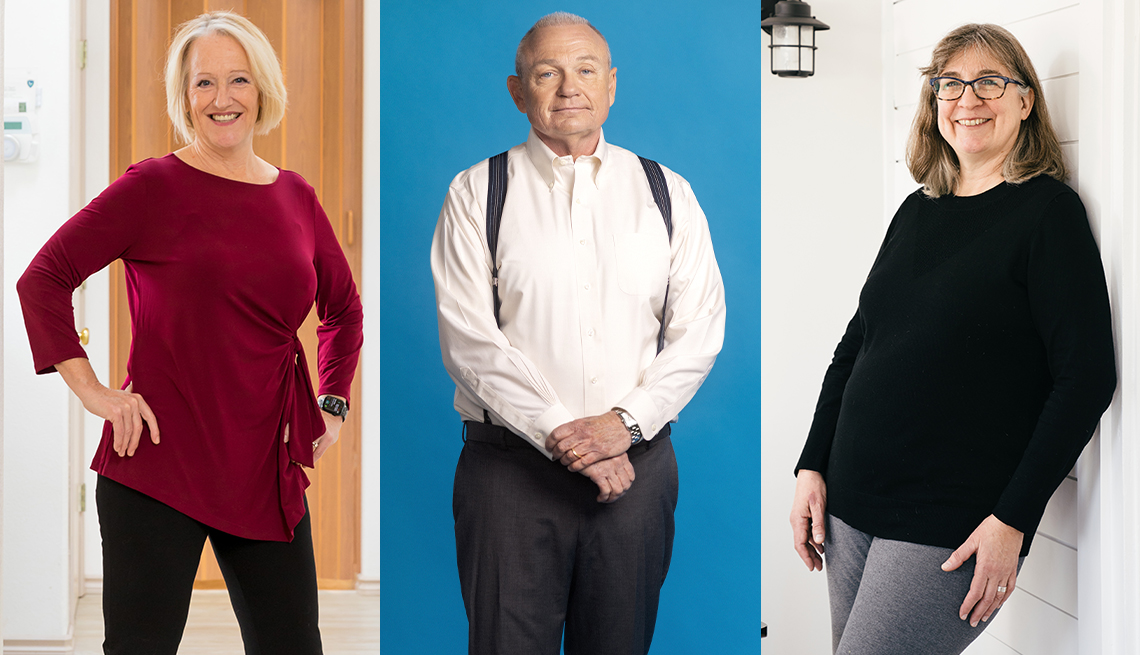
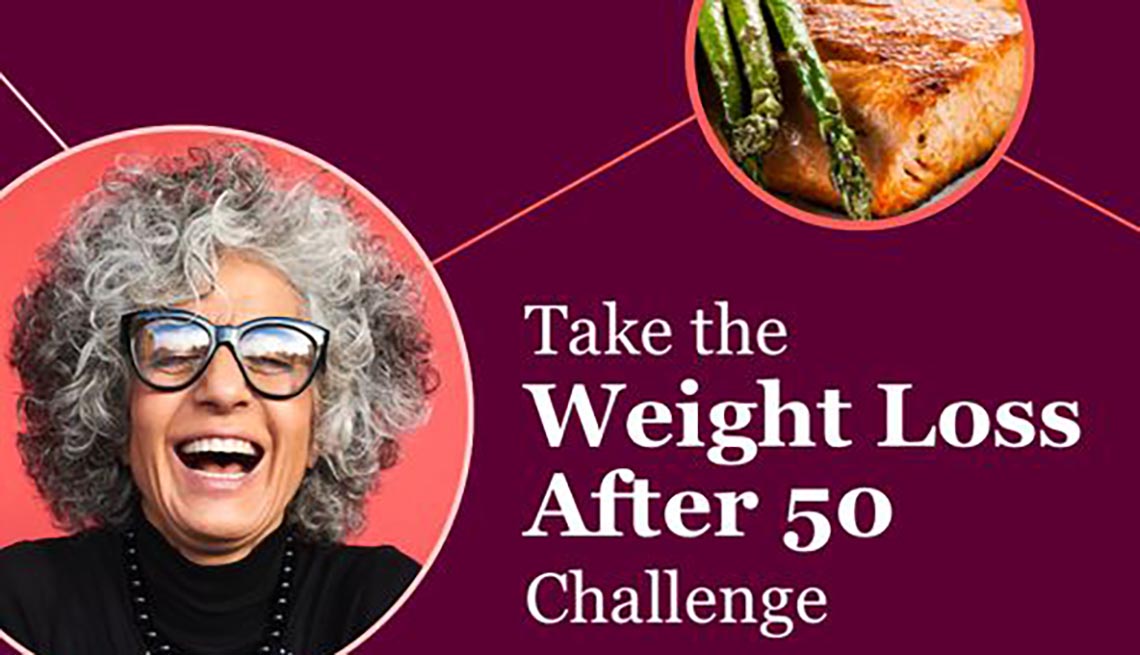
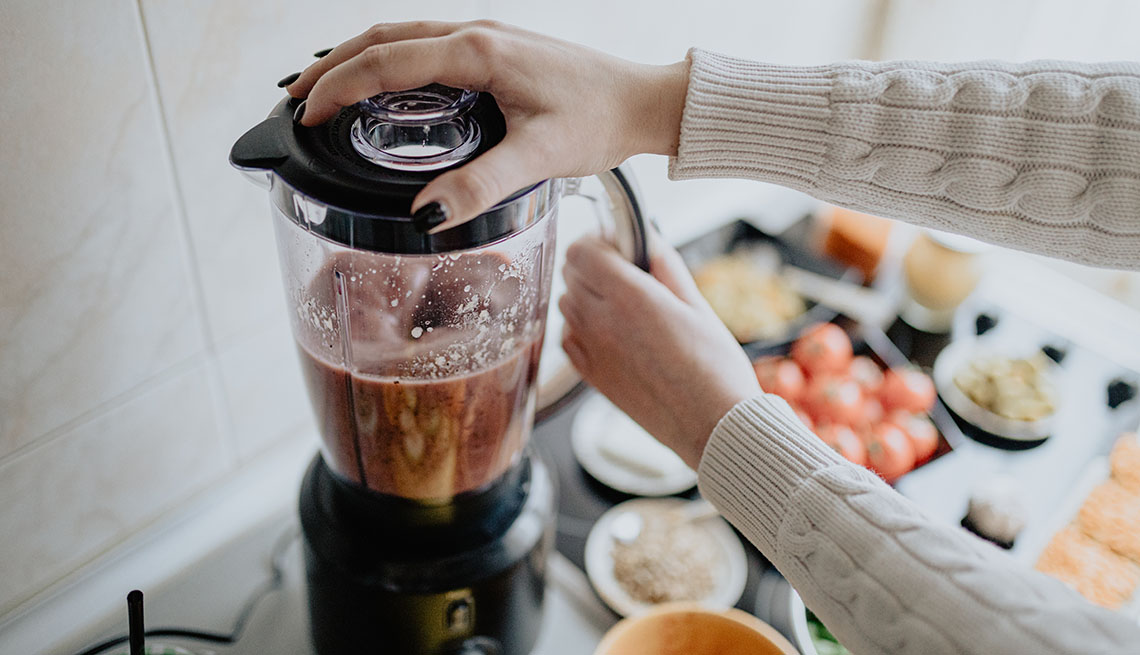

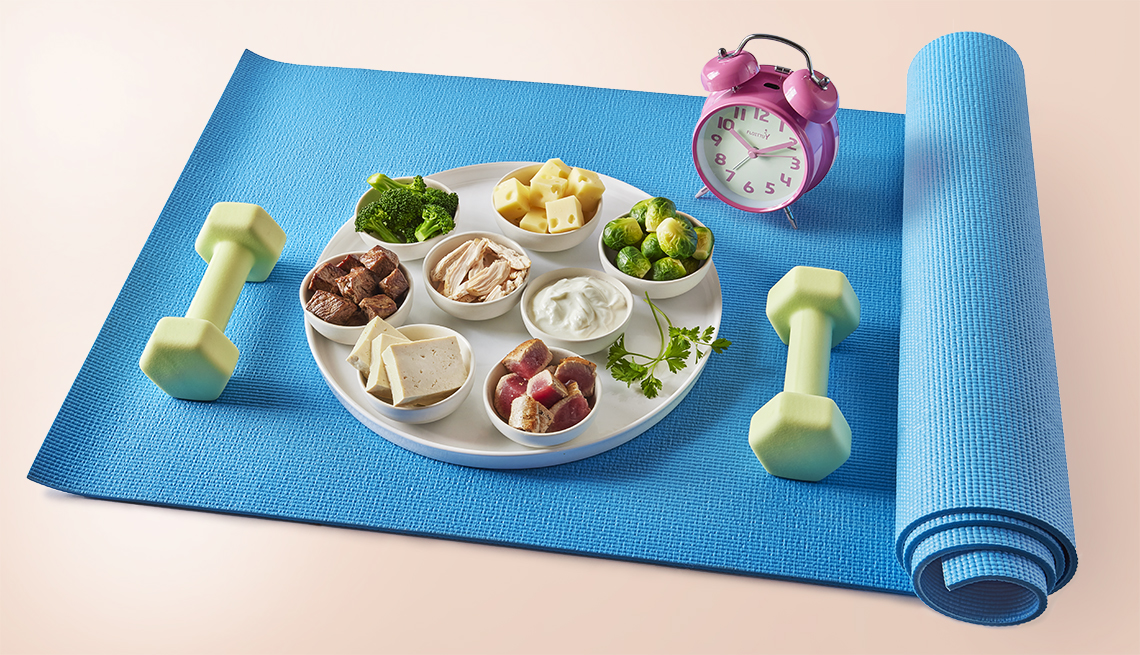
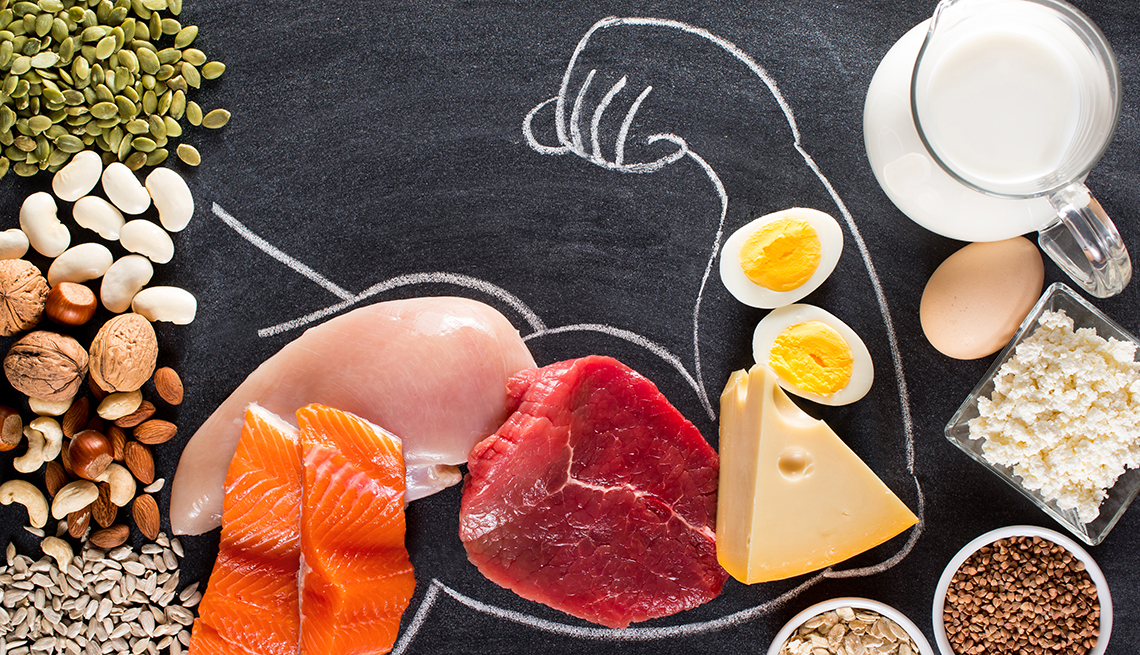






More on Health
6 Weight Loss Myths — and What Really Works to Drop Pounds
From carbs to juice cleanses, health experts sort through diet fads, fact and fictionHow to Exercise to Lose Weight
New research suggests weights, intervals and setting a timer on your phone may all be part of the plan